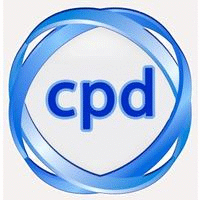Dr.Keerthi Paramasivam
MBBS degree in DR NTR University of Health Sciences, Andhra Pradesh
Title: The Aid of Ephedrine HCL, Curcumin and Turmerone in Neurogenesis and Inhibition of Beta-Amyloid Plaques in Transgenic Mice Models
Biography
Biography: Dr.Keerthi Paramasivam
Abstract
This study was done to demonstrate the effects of Ephedrine HCL ,Turmerone & Curcumin in Neurogenesis and Inhibition of Beta Amyloids in Transgenic Mice. The transgenic mice models used contain mutations associated with familial Alzheimer's disease (APP Swedish,MAPT P301L,and PSEN1 M146V). These mice develop age-related, progressive neuropathology including plaques and tangles. Ten-month-old male and female APPSw Tg+ and Tg− mice from 12 litters were randomly split between treatment groups. Tg+ mice were fed either chow containing a low dose of curcumin (160 ppm;n=9; a high dose of curcumin (5000ppm;n=6), or no drug (n=8) for 6 months. Mice with low and high dose of curcumin were given specific doses of 0.02% Ephedrine HCL injection every 72 hours and underwent a single intracerebroventricular injection of 3mg ar-turmerone. To evaluate whether curcumin treatment affected plaque pathology, cryostat hemibrain sections from Tg+ control and Tg+ low-dose curcumin-treated mice were immunostained with an antibody against Aβ1–13(DAE). Two-factor ANOVA revealed a significant reduction in plaque burden in curcumin, Ephedrine HCL and turmerone treated animals (F (1,60) = 4.74; p=0.03), in which amyloid burden was decreased by 43.6% in treated animals compared with untreated animals. Soluble Aβ in Tg+ untreated and Tg+ low-dose curcumin mice were measured by sandwich ELISA. Two-way ANOVA showed significant treatment effects in decreasing the levels of soluble Aβ (*p < 0.05). Underlying mechanistic pathways that might link curcumin treatment to increased cognition and neurogenesis via exon array analysis of cortical and hippocampal mRNA transcription showed a positive result.

